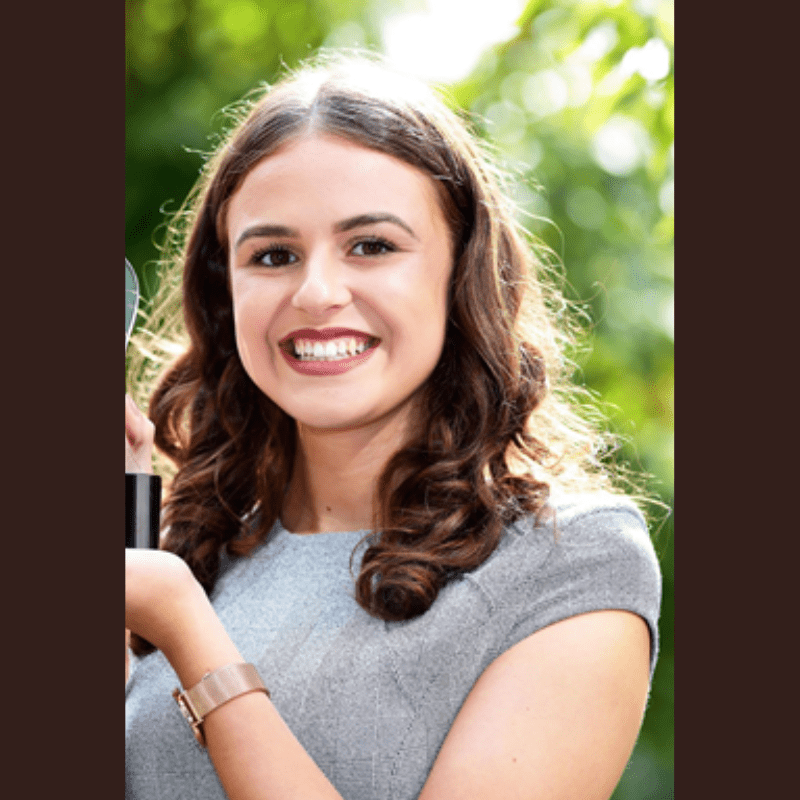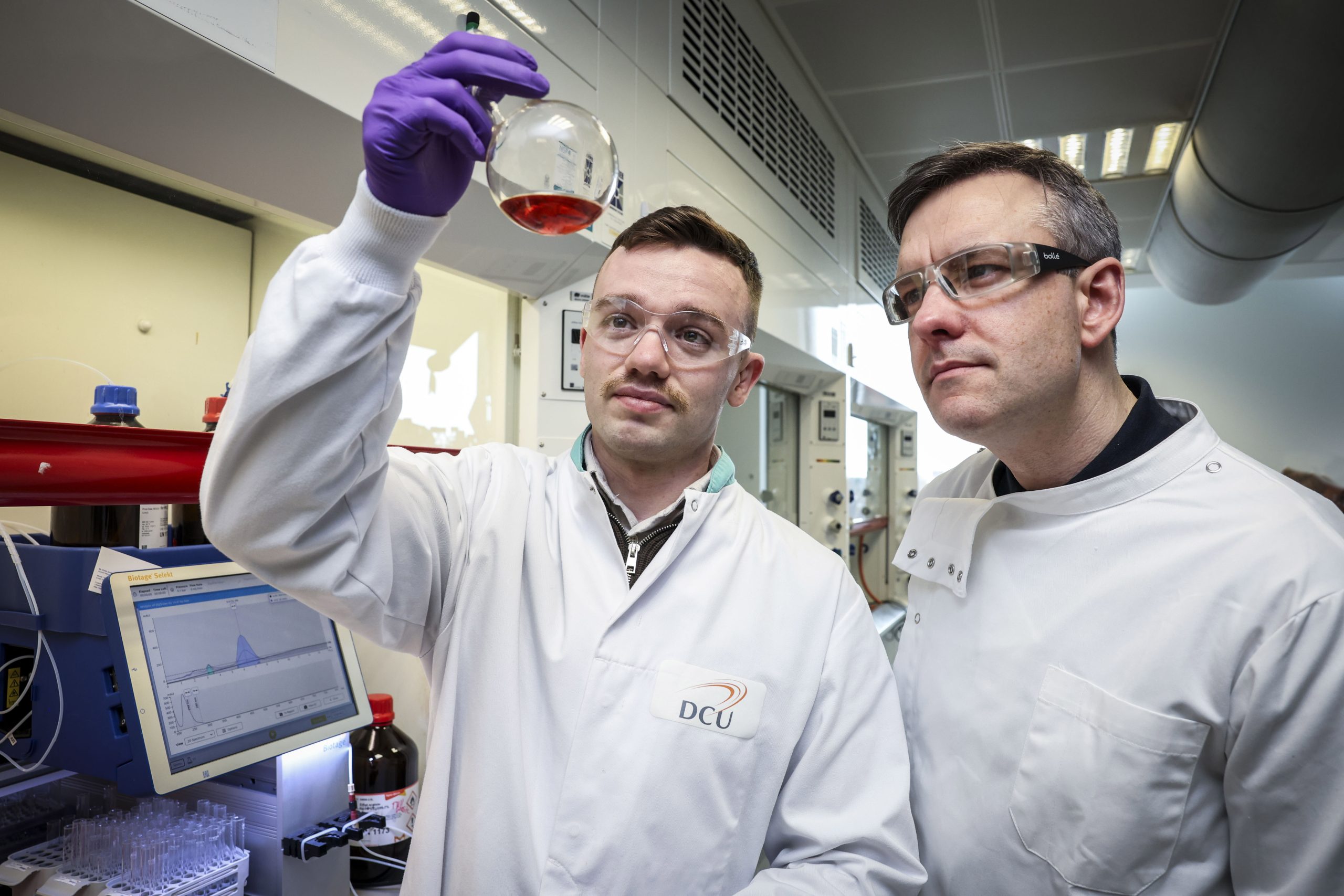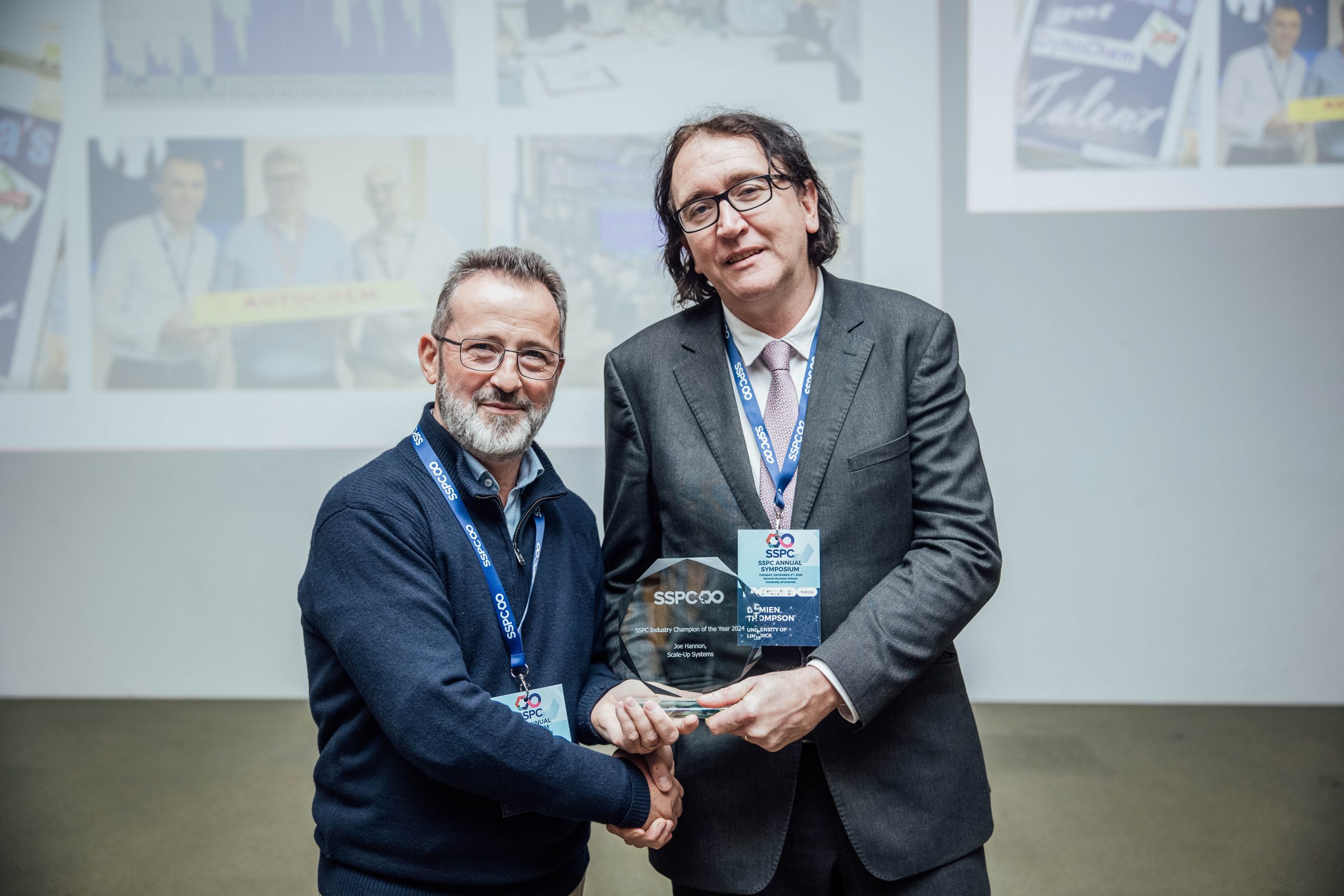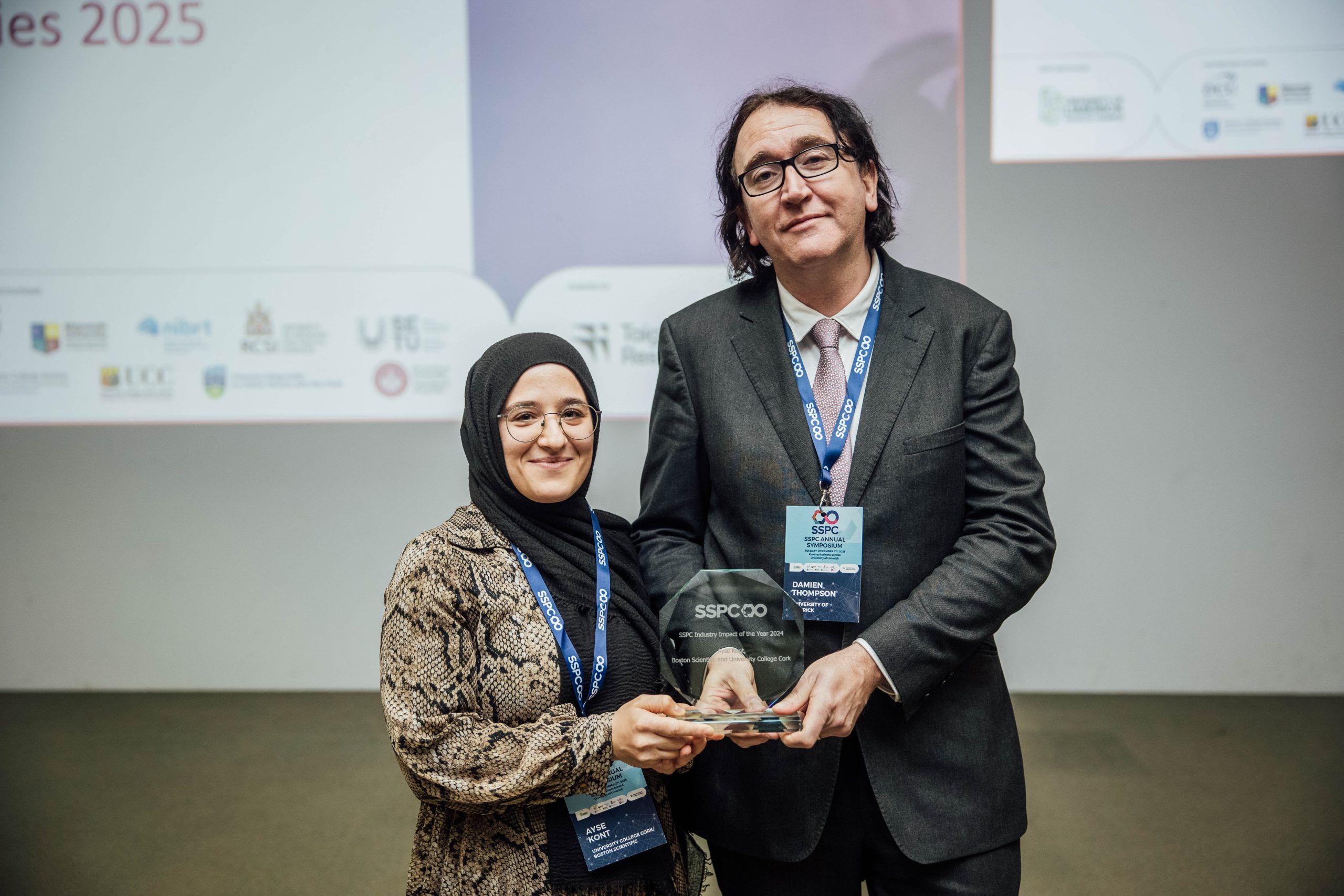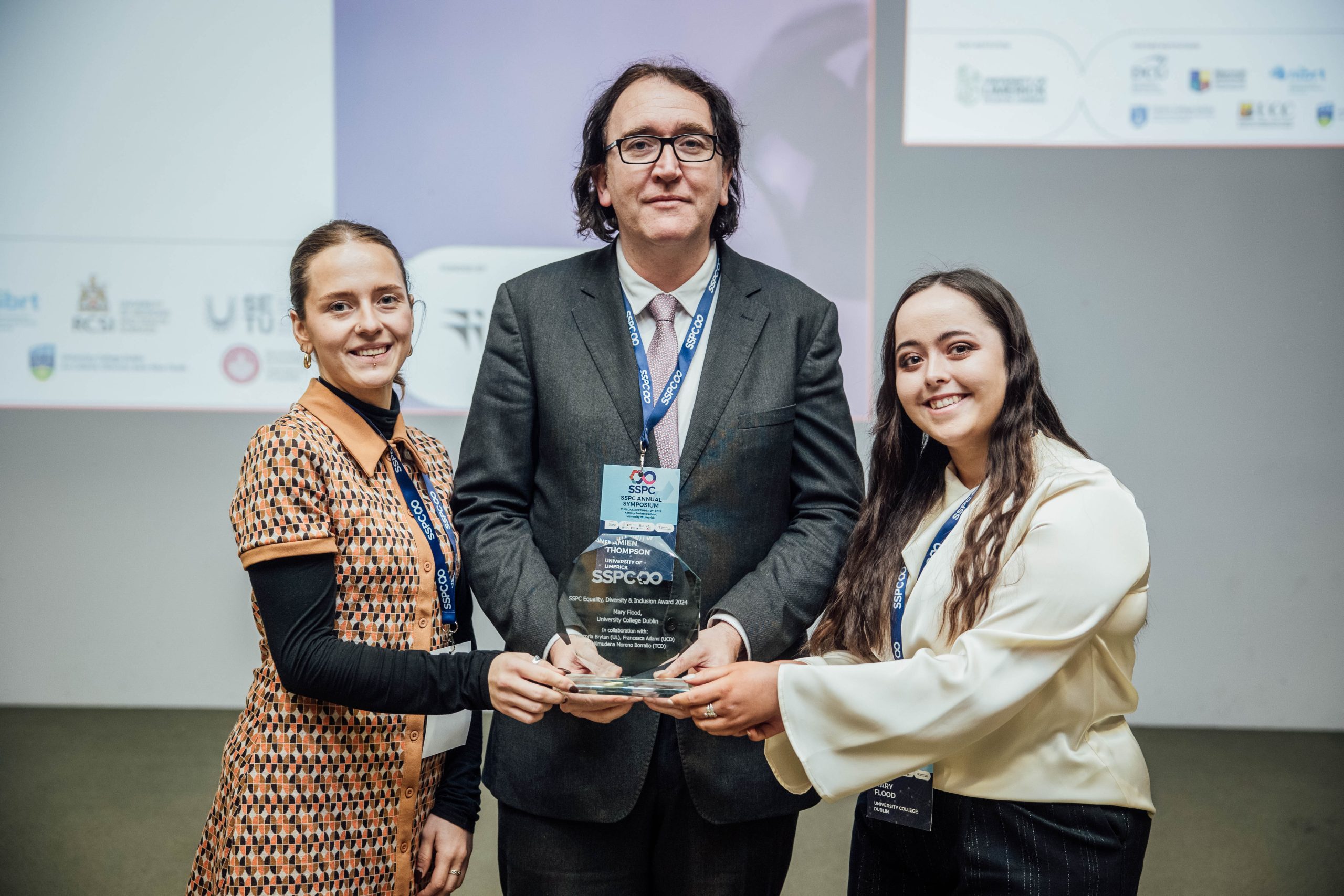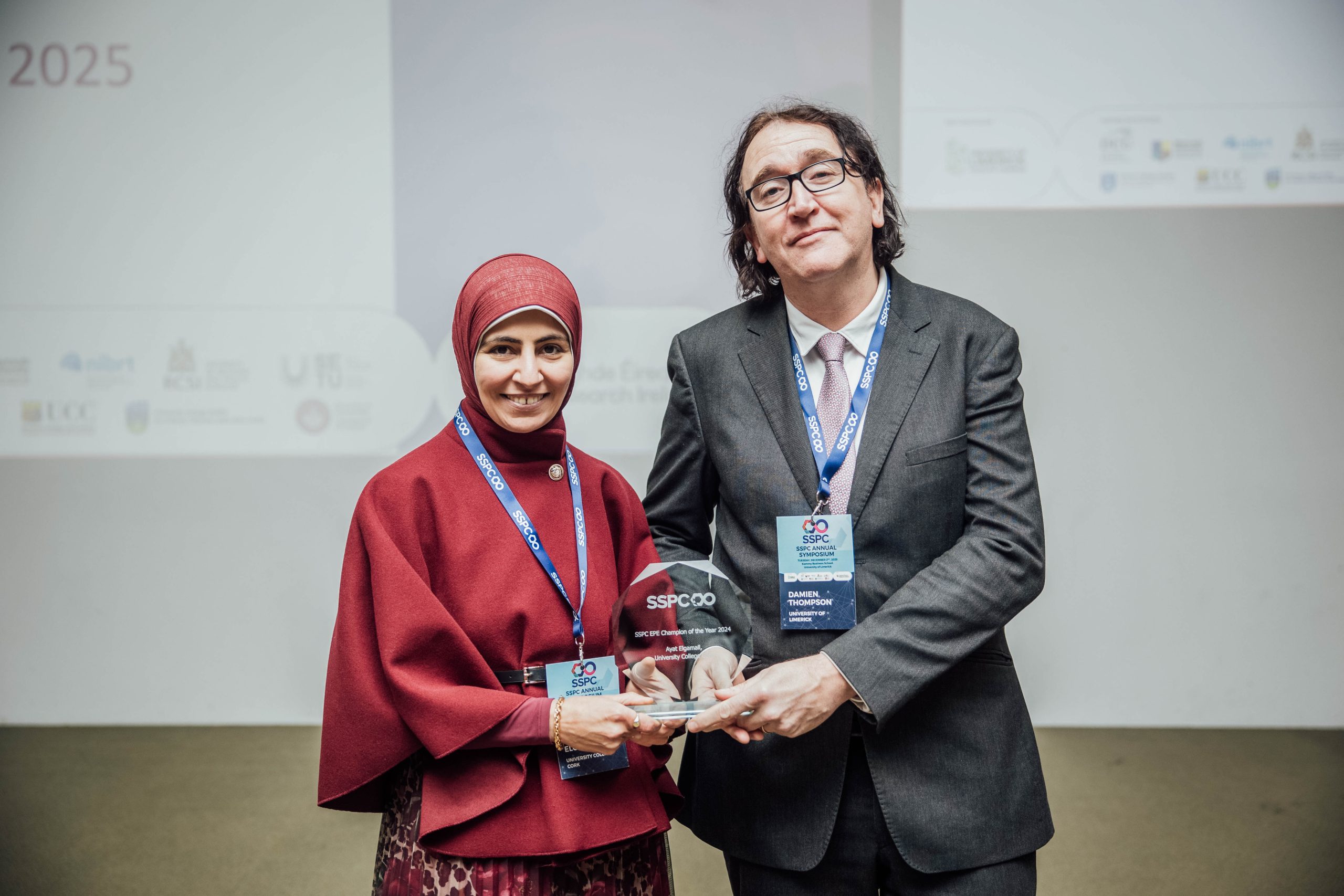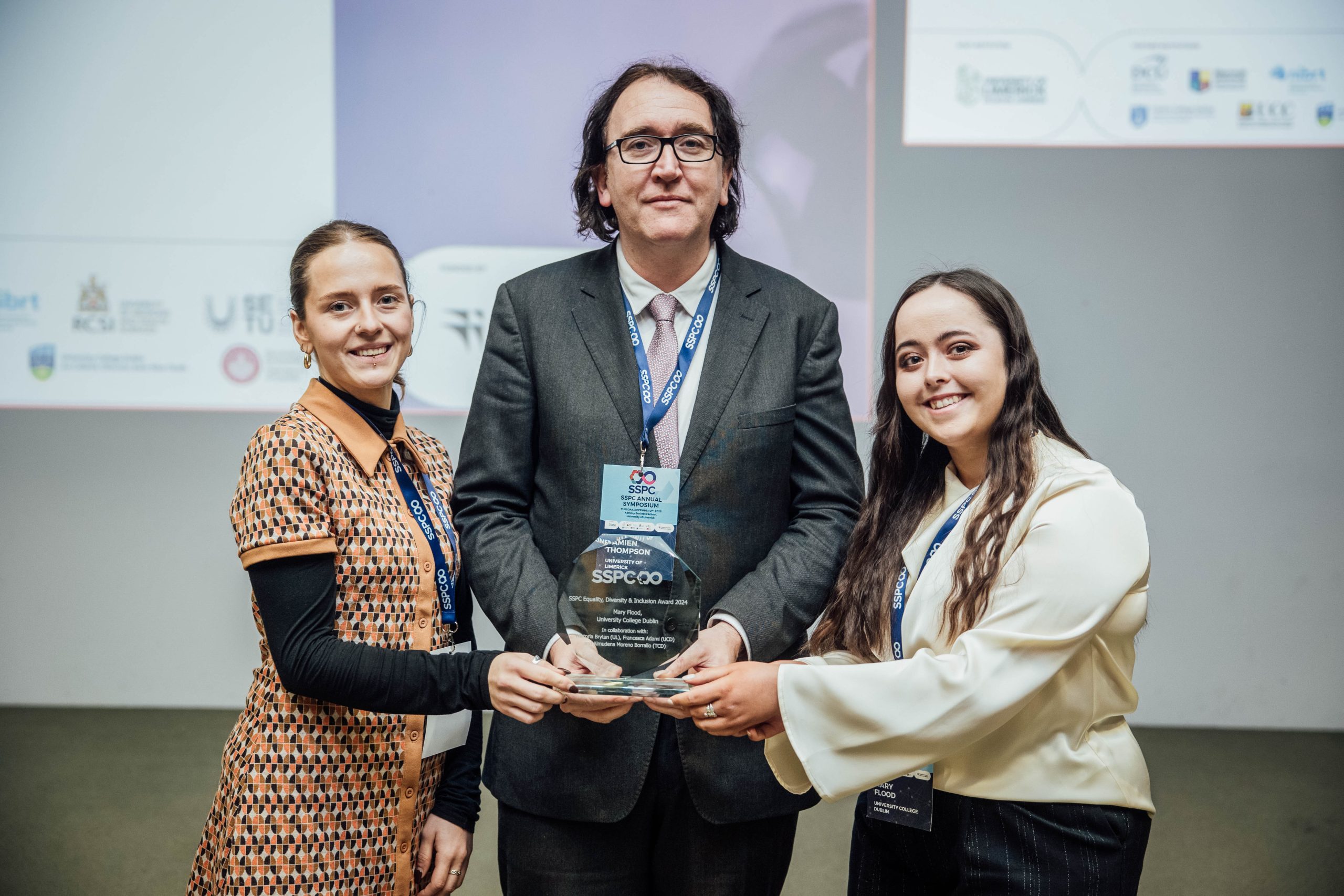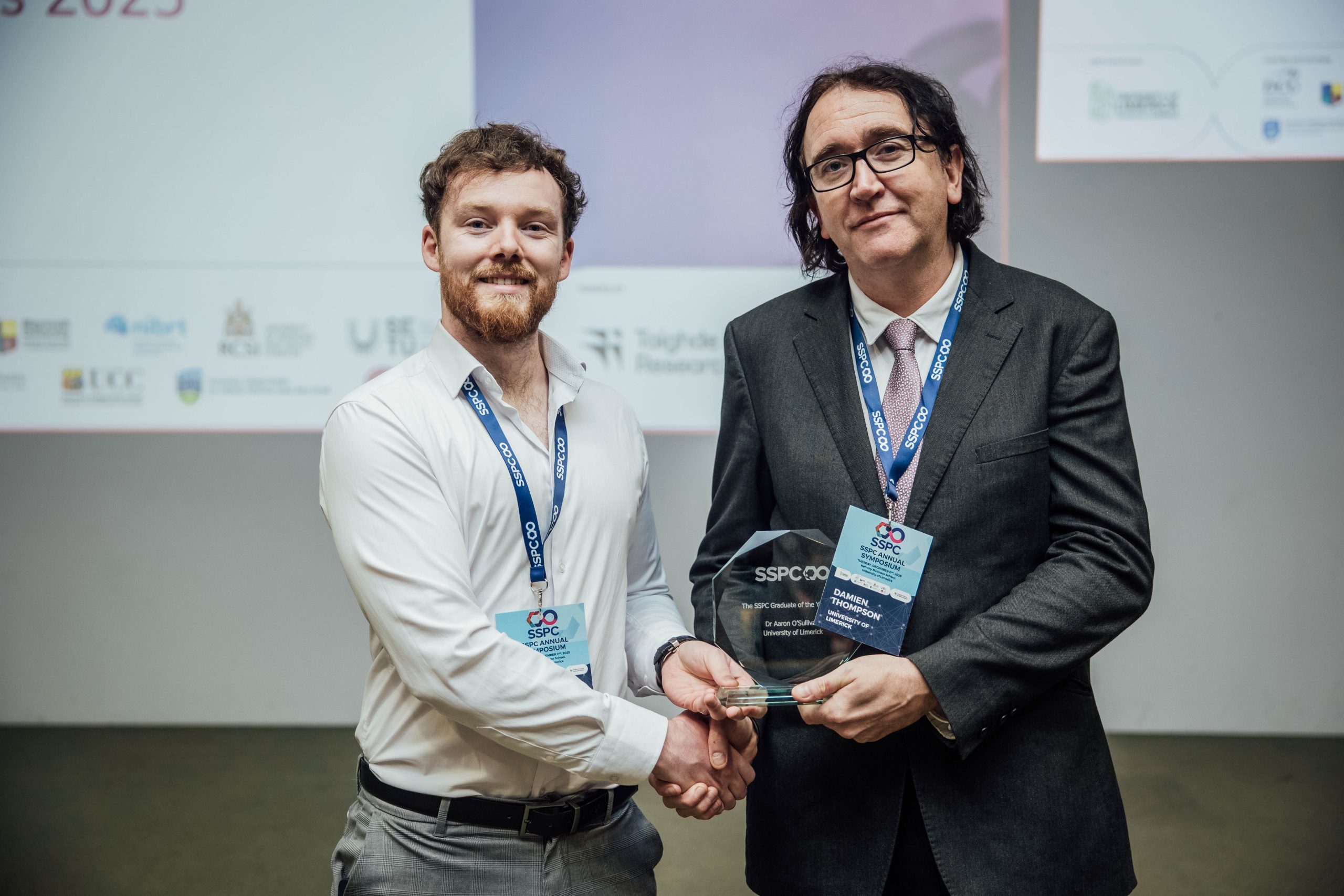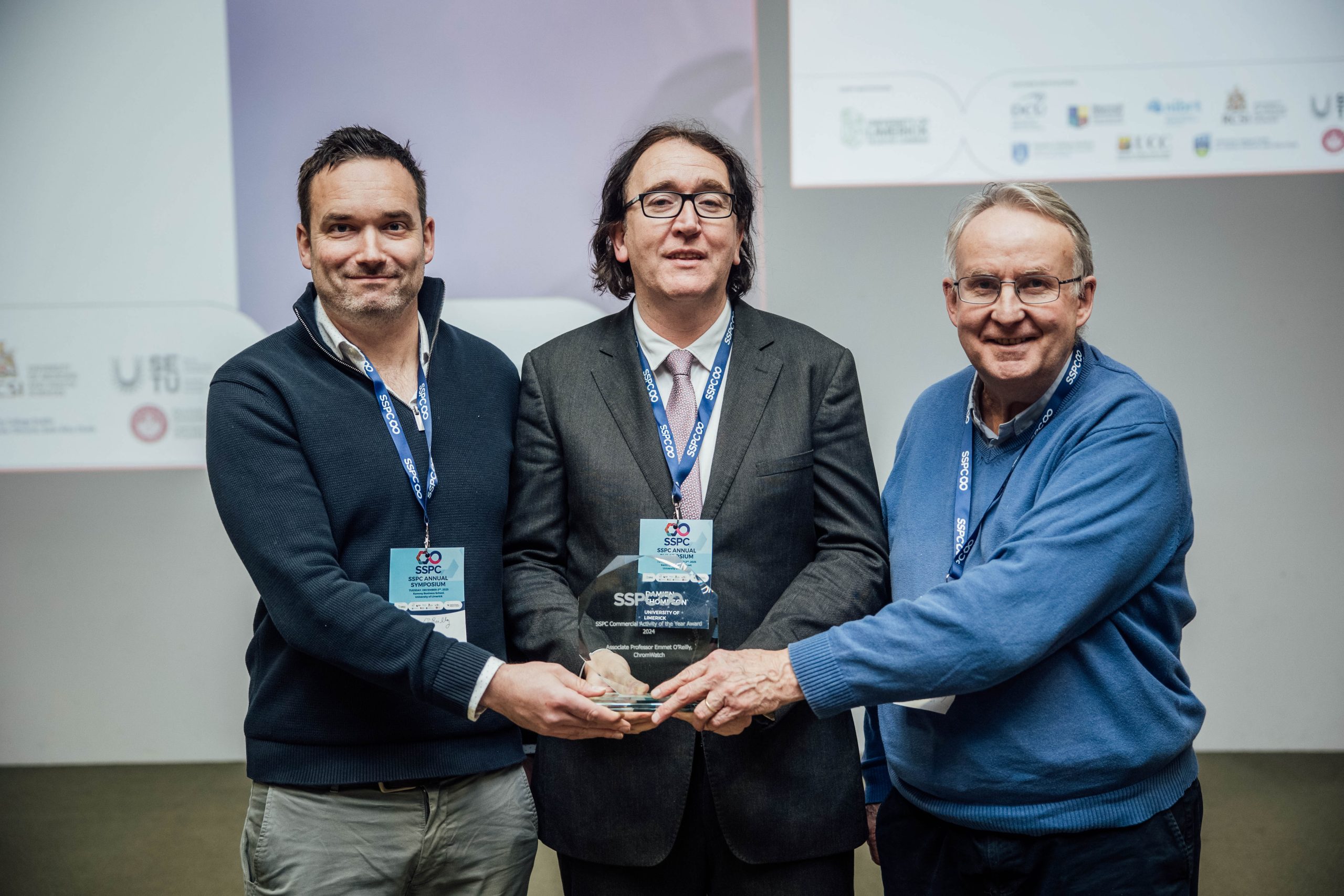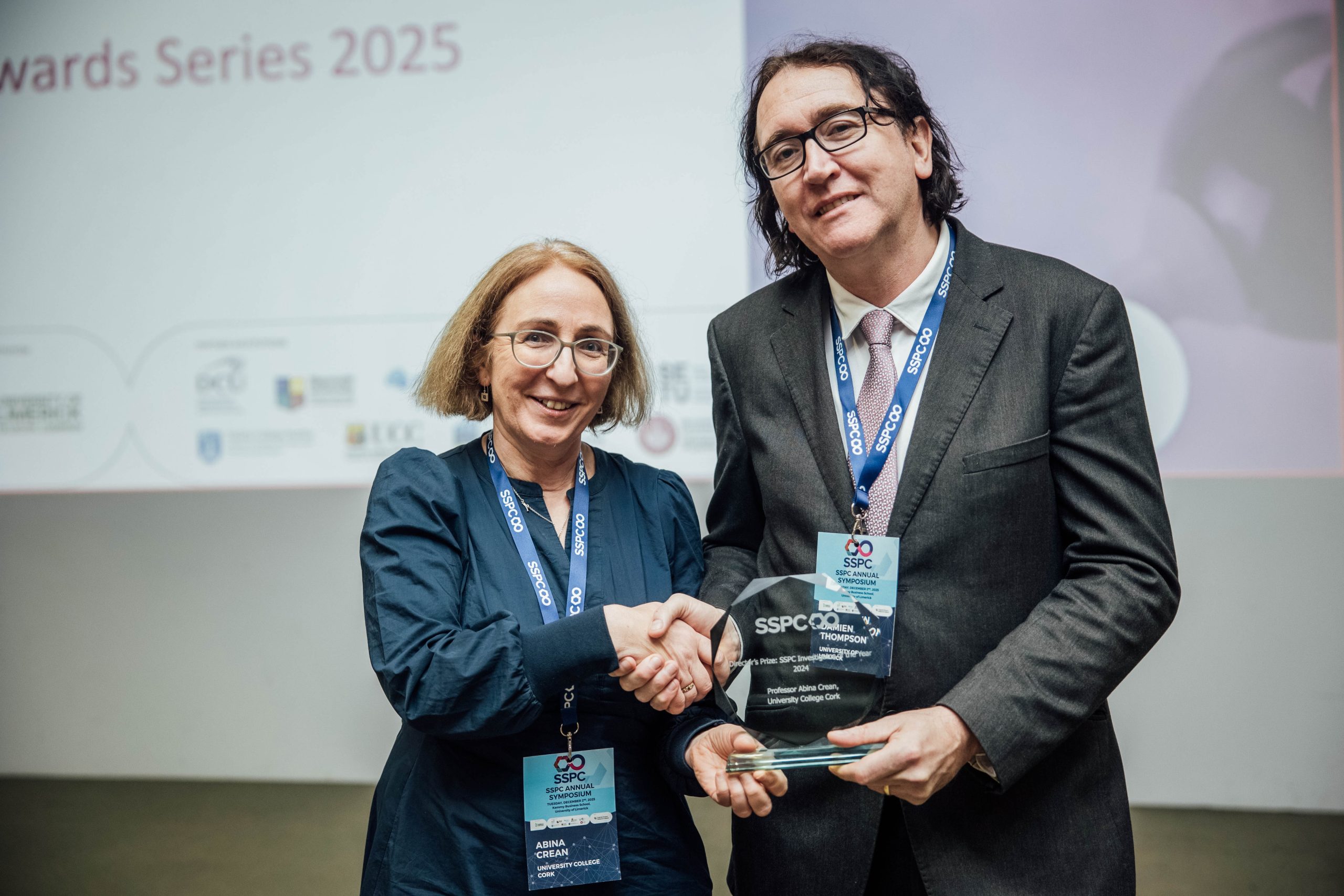Lena Kadri is a SSPC PhD based at Trinity College Dublin, took a 3-month placement with Zentiva Pharmaceutical Company in Prague, Czech Republic. Read about her work and experiences.
My project is on improving the solubility of poorly soluble fluroquinolone drugs by amorphous polymeric salt formation (APSs) using a planetary Retsch ball mill. Additionally, my project is also on developing a mechanistic understanding of mechanochemistry while producing these APSs. Thus, the aims of this project are to improve the solubility of fluoroquinolone drugs by preparation of Amorphous Polymeric Salts (APSs) and to discover a mechanistic understanding of mechanochemistry via ball milling process.
It is essential to develop and manufacture drugs which are highly soluble in nature in order to increase the bioavailability of that drug, and thus, improve the therapeutic effect of that drug on the patient. APSs is an extremely promising approach to improving the properties of poorly soluble drugs as it includes a combination of amorphisation and ionisation. This technique not only aids solubility enhancement, but it also improves the stability of the formulation, which also remains a challenge facing the pharmaceutical industry today.
Ball milling is an advantageous process which can successfully facilitate particle size reduction, amorphisation and polymorphic transformations. This process also implements green chemistry as it does not require the use of solvents. The mechanism behind mechanochemistry has yet to be fully explored and understood. It is essential to fill this unknown gap to successfully carry out ball milling in the future so that this process can be used to manufacture amorphous drugs, which are known to have a higher solubility and dissolution rate than crystalline drugs. Once this gap is filled, it will be possible to implement ball milling as a manufacturing process, to produce amorphous drugs on a large scale, without the use of solvents.
This project offers many benefits such as improving patients’ lives by increasing the solubility and bioavailability of drugs, enhancing the stability of the formulation through the use of polymers and ionisation, and by providing a process which is environmentally friendly and does not negatively impact human health or the environment around us.
Overall Aims of my project:
- Improve poorly soluble BCS Class II and IV fluoroquinolone drugs
- Improve the stability of amorphous drugs through APS formation
- Reduce the amount of solvents used to form and manufacture APSs
- Establish a mechanistic understanding of mechanochemistry for APSs and amorphous solid dispersions (ASDs) to better understand mechanochemistry so the process can be scaled up in future
- Information on where you were placed?
I was placed in Zentiva in Prague, Czech Republic from May-July 2022. I was a part of the pre formulations lab group. I had access to the office space and the lab whereby I was able to carry out my experiments and anlyse my results.
- The type of work you did?
I ball milled binary (one polymer) and ternary (two polymers) APS fluoroquinolone formulations in TCD. These formulations were sent over to Zentiva, Czech Republic for further analysis.
- 16 formulations
- API and neutral, amphiphilic polymer
- API and acidic polymer
- API, acidic polymer and neutral, amphiphilic polymer
- API and two acidic polymers
The following was carried out while on a three-month secondment in Zentiva, Prague, Czech Republic:
- solubility studies of 16 formulations in
- Aqueous
and
- FeSSIF and FaSSIF buffers
- HPLC analysis
- XRPD analysis of solid formulation from solubility studies
- pKa studies of acidic polymers
- tablet formulation and disintegration of binary system
- precipitation of Ciprofloxacin (API) studies
- Did this fit into your PhD or did you learn something new?
Yes, this fit into my PhD as I was able to continue my PhD project while in Zentiva and analyse all 16 formulations.
Yes, I learnt an infinite amount of new information. I learnt how to carry out solubility studies, prepare aqueous, FeSSIF and FaSSIF buffers, how to set up and run HPLC, how to analyse HPLC results, and how to recognise when samples need further dilution in order to get accurate and reliable HPLC results. I learnt how to use multiple different apparatus and equipment while in Zentiva to get results needed for my project, such as pKa values of acidic polymers and precipitation of Ciprofloxacin.
I also learnt how to design a tablet formulation so that my APSs/ASDs which consisted of the API and polymer(s) could be successfully tableted. Lastly, I learned how to carry out disintegration studies and detect whether a good tablet had been made based on how quickly the tablet disintegrated. The problems encountered during these experiments allowed me to further learn how to improve tablet disintegration without changing the formulation. This involved firstly making granules before directly tableting the powdered formulation.
To conclude, the time spent at Zentiva greatly contributed towards my learning due to the wide exposure to new equipment and apparatus, and also, the wide network of skilled workforce that were happy to share their knowledge and expertise with me.
- What were the biggest differences you experienced on your industry placement i.e. workload, organisation, strategic thinking etc.?
The biggest differences I experienced while on my industrial placement were the obvious hurdles you would expect, culture change, workforce, different way of operating and carrying out a project, changes from university setting to pharmaceutical protocol etc. However, all of these differences were refreshing and helped me to further grow and learn.
- What did you learn above all?
I learnt just how important collaboration is. Collaborating with Zentiva allowed me to gain exposure to a wide range of experts and scientists with different skillsets. It was extremely interesting to see multiple people come together to solve a problem and how multiple perspectives and educational backgrounds can bring about a solution within minutes.
- Has this placement helped you with choosing a career in academia or industry?
Yes and no, this placement has raised my awareness to the pros and cons to both industry and academia. The world of science excites me so much that it’s difficult to say which career path I would like to take indefinitely. All I know as of now, is that I want to continue to learn and develop as much as I can in order to become the best scientist that I can possibly become. This will allow me to contribute and give back in the best way that I can. I believe that this can be achieved in both academia and industry. Regardless of the career path I choose, I will ensure that I am always working on a project that is meaningful and that will bring about positive change and improvement to patients across the globe and to the environment.
- Overall, what do you think an industry placement means to a PhD/Post-doc researcher.
I think an industrial placement means an opportunity to grow and develop as a scientist and researcher while carrying out a PhD or Post-doc role. I think it’s also an opportunity to embrace different cultures and ethnic backgrounds and work together as one, towards a common goal.

